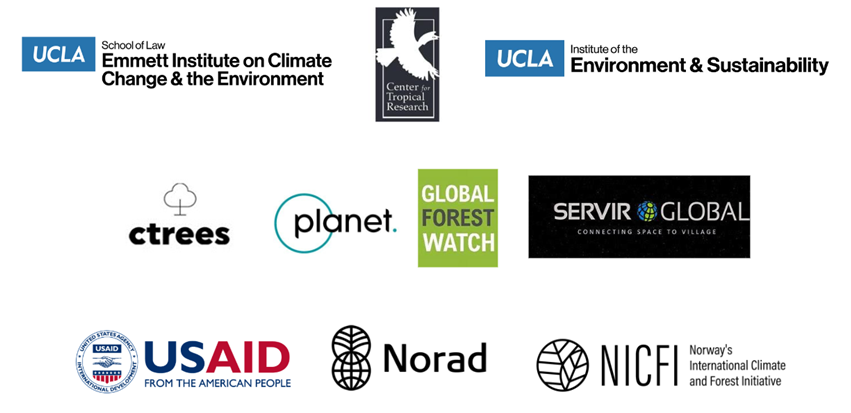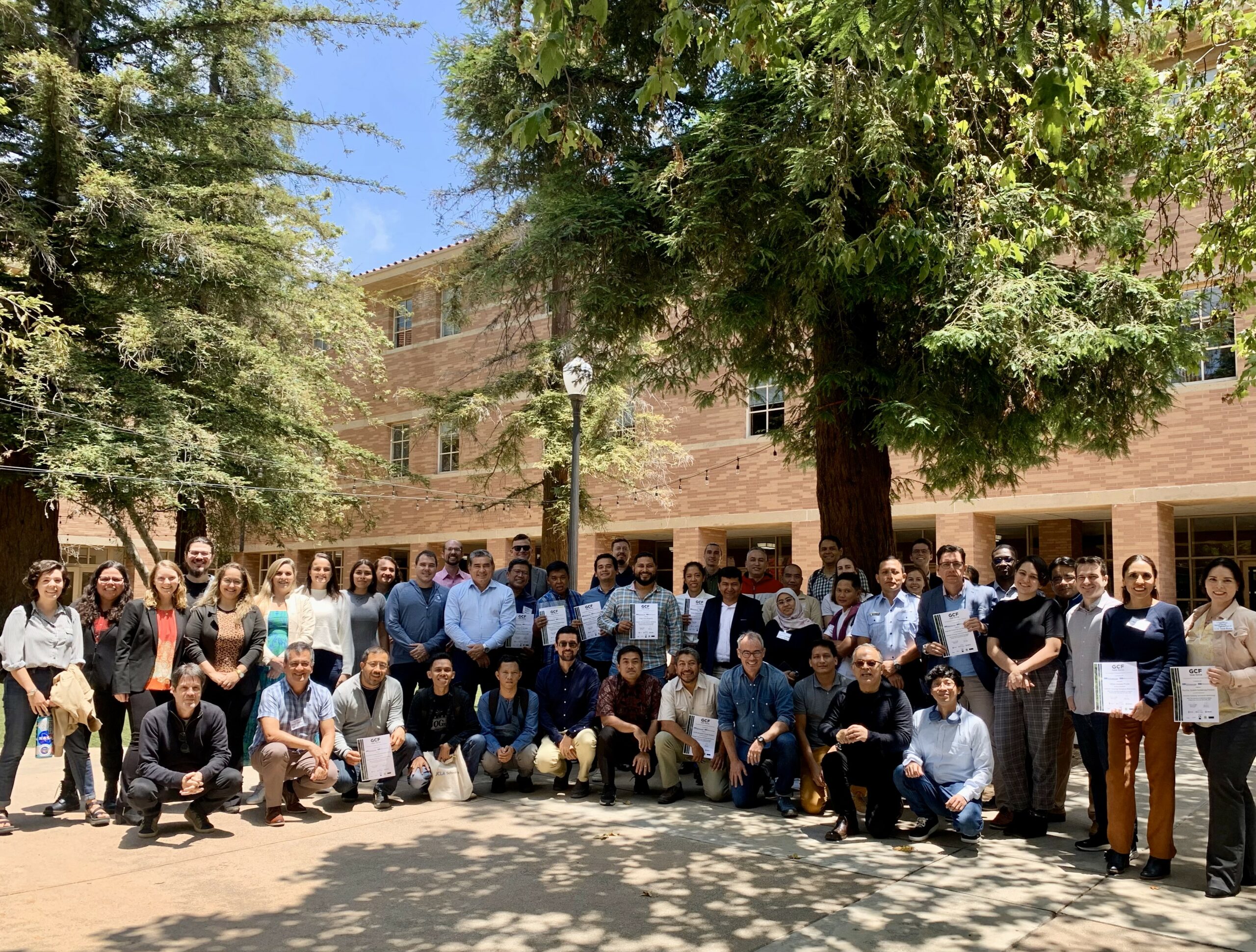Over the course of this week, the Governors’ Climate and Forests Task Force (GCF Task Force) held its first Remote Sensing Workshop at the University of California Los Angeles (UCLA). This workshop was designed for geospatial technicians and decision-maker representatives of GCF Task Force member jurisdictions and is a key component of our grant from the Government of Norway (Norad). It also followed on the Memorandum of Understanding (MOU) with CTrees, which was signed at our most recent Annual Meeting in Mérida, Yucatán in February 2023. See here for the workshop agenda.
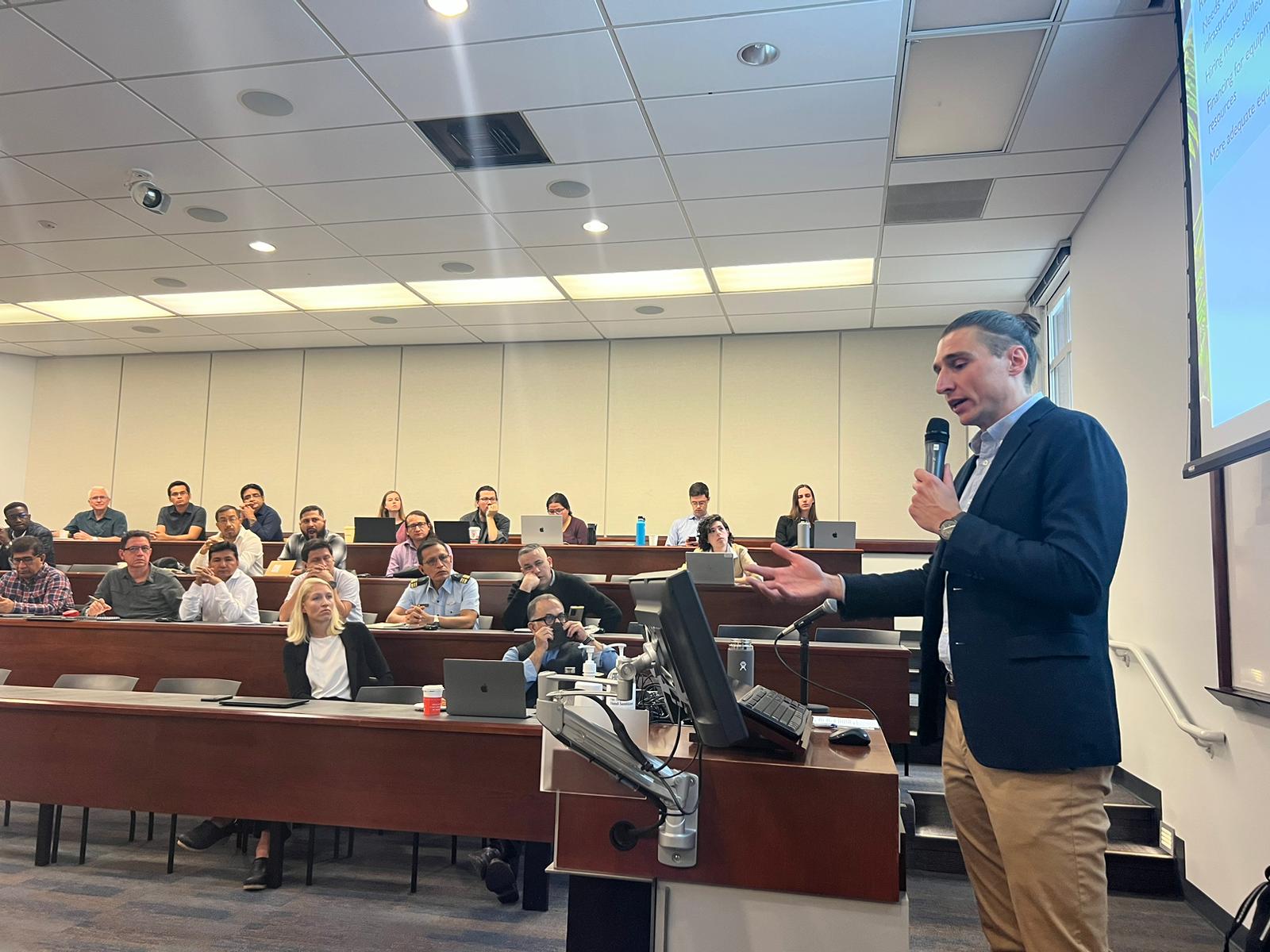
The workshop opened with an overview of how the GCF Task Force network is seeking to expand its support to member jurisdictions through deeper engagement on jurisdiction-specific and network-wide needs for tools such as remote sensing data and platforms to improve forest governance decision-making. Monday featured framing presentations by Professor William Boyd (GCF Task Force Project Lead and Professor of Law at the UCLA School of Law), Jason Gray (GCF Task Force Project Director), and Marius von Essen (UCLA Post Doc supporting the GCF Task Force). We also heard from Dr. Elsa Ordway (UCLA Assistant Professor, Department of Ecology and Evolutionary Biology and Center for Tropical Research) and Dr. Sassan Saatchi (NASA Jet Propulsion Lab Senior Scientist, Adjunct Professor, and CEO of CTrees) who presented on the history of remote sensing (including early attempts to obtain aerial imagery by strapping small cameras onto pigeons!) and the status of remote sensing science and emerging products and tools.

Monday also featured deep dive presentations from Vanessa Martin on the offerings of SERVIR Global, a joint NASA/USAID venture; Dr. Adam Moreno of GCF Task Force member California on the California Air Resources Board’s most recent Climate Change Scoping Plan (which incorporates new science around natural and working lands monitoring); Alex Marega (Mato Grosso) and Bianca Marcuartú (Pará) on the experiences of using satellite imagery and other remote sensing tools for alerts to combat illegal deforestation in Brazil; as well as the experiences, needs, and challenges in our Mexican state members and in Roraima (Brazil).
Tuesday continued the discussion with a focus on experiences in Indonesia and Peru, and a round table discussion with participants from 26 member jurisdictions from Brazil, Côte d’Ivoire, Ecuador, Indonesia, Mexico, Peru, and the US. Tuesday also featured a more detailed presentation and discussion on the platform and products provided by CTrees (featuring Dr. Saatchi, Ricardo Dalagnol, Adugna Mullisa, and Stephanie George), including discussions on how GCF Task Force jurisdictions can partner with CTrees in practice. This dialogue is ongoing as part of the above-mentioned MOU.
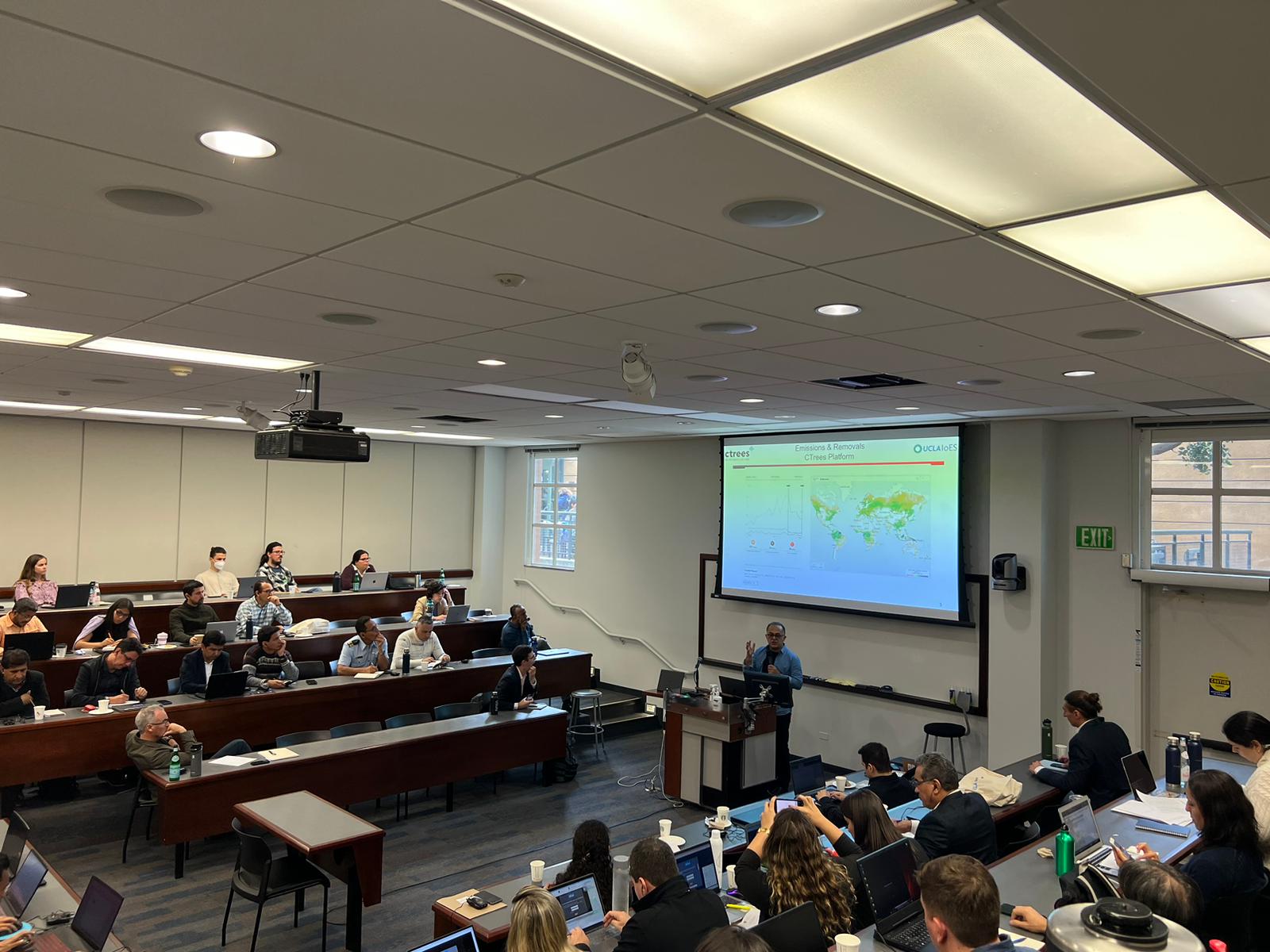
Wednesday focused on additional trainings for our participants from Planet Labs (featuring Tara O’Shea, Flavia de Souza Mendes, and Octave Lepinard) to gain a better understanding of Planet’s Satellite Constellations, the NICFI Satellite Data Program (supported by the Government of Norway), NICFI User stories, and a tutorial on how to access and utilize Planet imagery within the NIFCI Satellite Data Program. In addition, Anika Berger of Global Forest Watch walked us through Global Forest Watch’s data platform, several use cases for fire and deforestation alerts, and other related monitoring products.
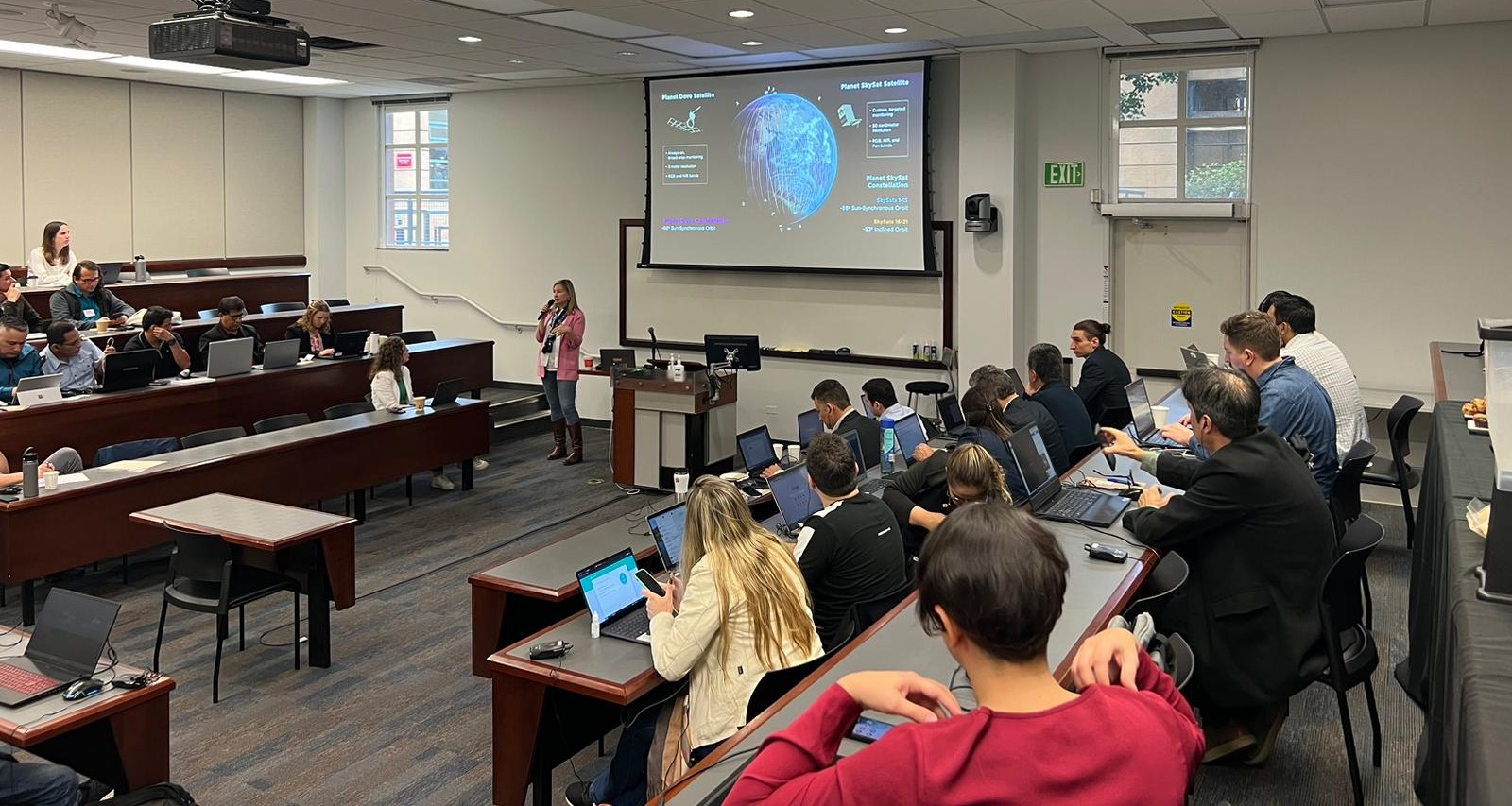
On Thursday we concluded with a round table discussion amongst government participants, platform providers, faculty, and other experts to discuss lessons learned and next steps, which may include additional technical workshops. One key take way from the workshop was the clear desire of technical staff from our member jurisdictions to learn from each other, to work with data providers to better meet governmental needs, and to create a new forest economy which is monitored with state-of-the-art data resources to enable transparent and effective forest governance that protects the forest, increases economic development, and that benefits Indigenous Peoples and local communities.
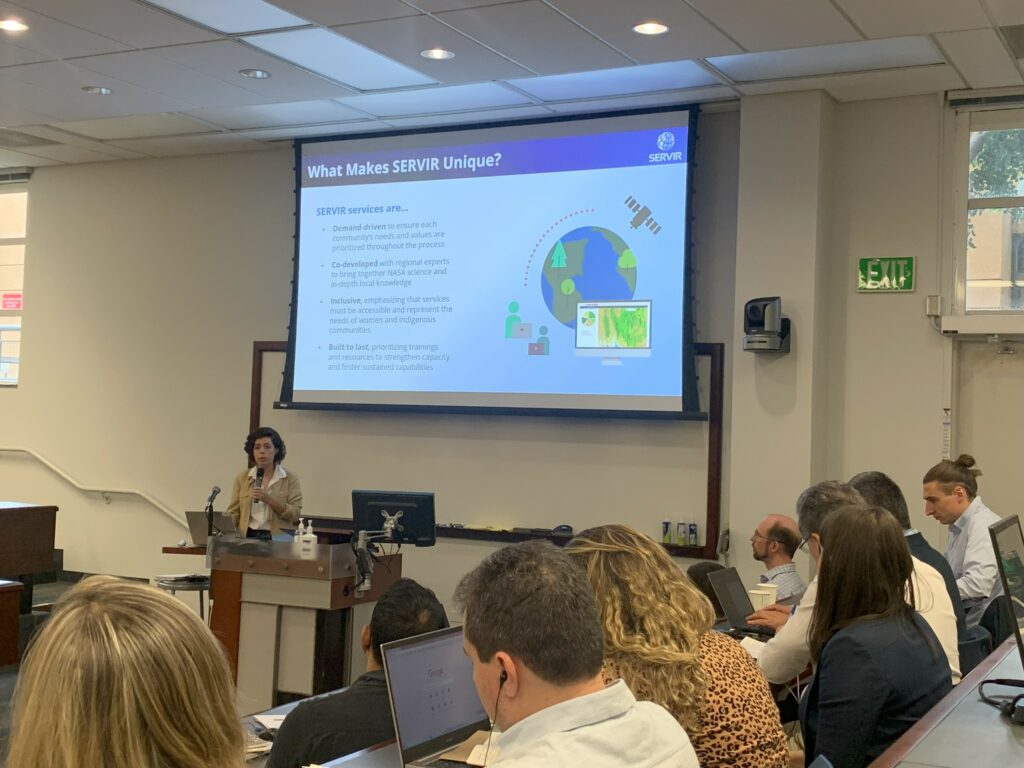
We look forward to our members continuing to experiment and work together. Dr. Boyd’s closing remarks urged all present to “not be boring,” to continue innovating, and to share their needs and their successes.
Finally, we are so grateful to our generous sponsors and trainers, including Norad, USAID, NICFI, UCLA’s Emmett Institute on Climate Change and the Environment, Institute of the Environment and Sustainability, and the Center for Tropical Research, Planet Labs, CTrees, Global Forest Watch, and SERVIR Global.
